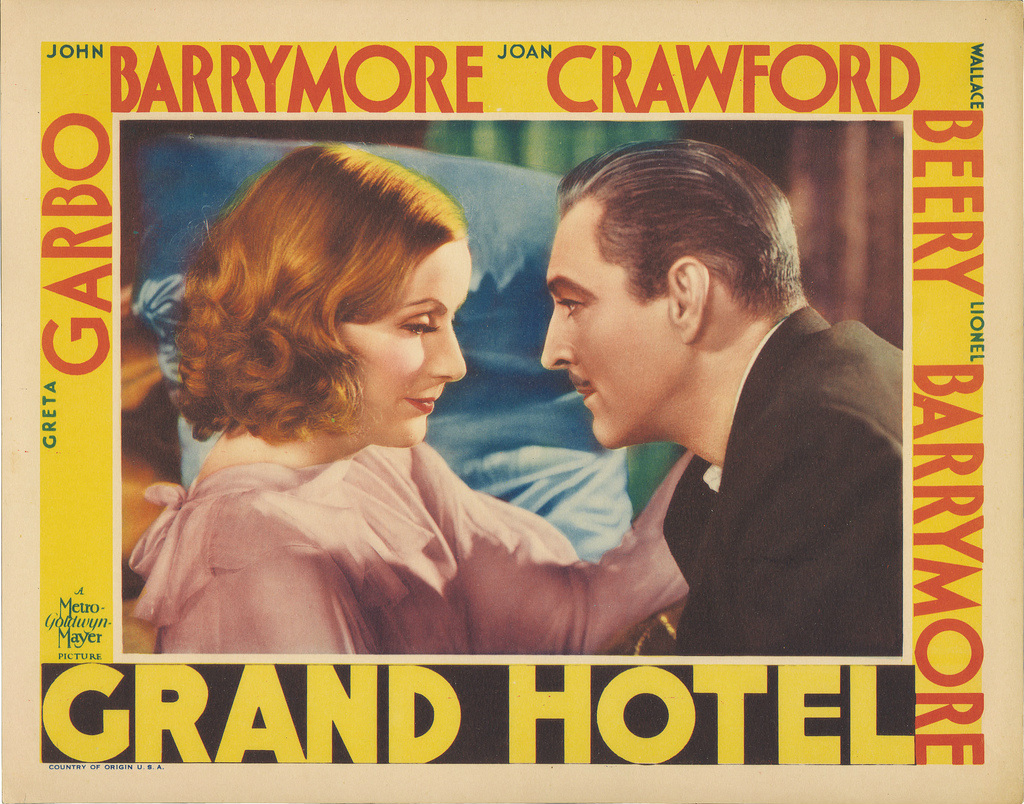The Ensemble Technique and All-Star Cast in the Grand Hotel Movie
The “Grand Hotel” movie, released in 1932, is a masterpiece of drama that takes place in an ultra-luxurious hotel in Berlin.
It has earned high praise as an ensemble film that intertwines the complex lives of various characters with distinct paths.
This movie boasts an impressive cast, featuring stars like Greta Garbo and Joan Crawford, who deliver outstanding performances, leaving a deep impact on audiences.
One particularly notable element is the “Grand Hotel style,” a storytelling technique where diverse characters gather in a single setting.
This structure creates both tension and immersion, greatly enhancing the experience.
The “Grand Hotel style” was later adopted by many other films and has since had a significant influence on the film industry.
In this article, we will explore the synopsis of the “Grand Hotel” movie, introduce its cast, and delve into the historical context and lasting impact of this film, capturing its timeless appeal.
In-Depth Exploration of the Allure of the Movie “Grand Hotel”!
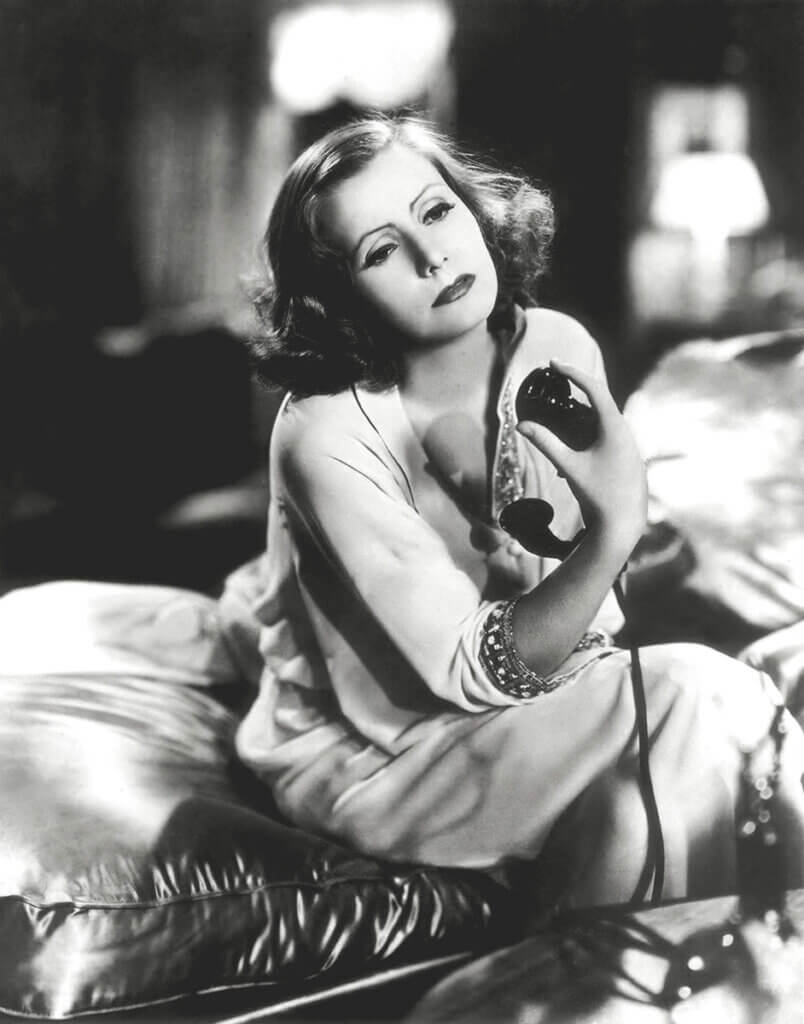
Synopsis of the Movie Grand Hotel
The movie Grand Hotel is set in a prestigious hotel in Berlin in 1932, where the lives of various characters intersect over the course of a single night, taking unexpected turns.
At the story’s heart is Grusinskaya, a ballerina from Russia.
Clinging to her past fame, she feels an emptiness deep within and struggles to find hope in life. In the hotel, she encounters the mysterious Baron von Gaigern, who initially intends to steal her jewelry but grows to genuinely love her, leading to an internal conflict over his plan.
Meanwhile, Preysing, a wealthy businessman, is staying at the hotel as his company faces a financial crisis.
He treats his secretary, Flaemmchen, with cold detachment, and although she grows increasingly resentful, she continues working for him out of necessity.
Also staying at the hotel is Kringelein, an accountant at Preysing’s company, who, facing a terminal illness, decides to savor the time he has left by indulging in the hotel’s luxuries.
He soon meets Flaemmchen and invites her on a trip to Paris.
Each of these characters, with different backgrounds and aspirations, experiences a fateful encounter at the Grand Hotel, where love, desire, hope, and despair intertwine.
As their lives converge, unexpected outcomes unfold.
The Baron, hoping for a new life with Grusinskaya, sneaks into Preysing’s room in search of money, only to lose his life in a confrontation.
With their shared dream, Grusinskaya leaves the hotel to meet him at the station.
Meanwhile, Flaemmchen and Kringelein, drawn to each other, resolve to embark on a new life together in Paris.
Grand Hotel masterfully captures the intricate and intertwined lives of its characters within the confines of a single hotel, showcasing how each of their paths changes dramatically.
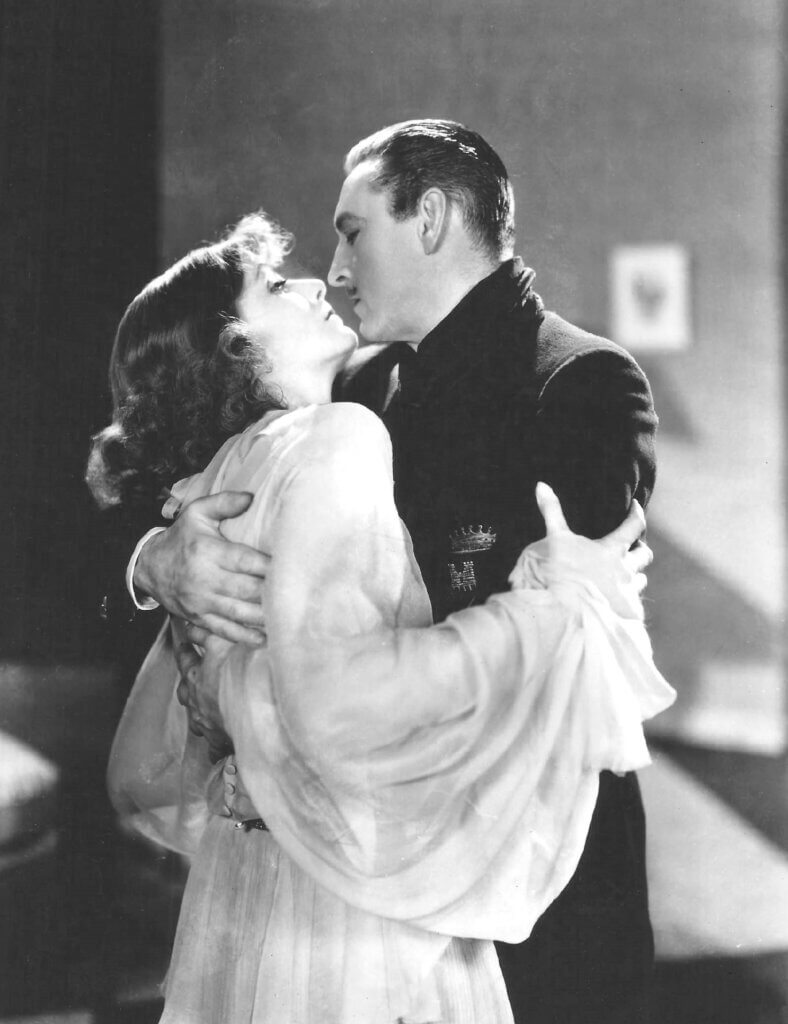
Grand Hotel Cast
One of the standout features of the movie Grand Hotel is its all-star cast, showcasing some of Hollywood’s biggest names of the time.
First, we have Greta Garbo, who played the lead role of Grusinskaya.
A Swedish-born actress who rose to fame in the silent film era, Garbo captivated audiences worldwide with her beauty and acting prowess.
In this film, she portrays a ballerina clinging to her former glory, delivering a performance filled with melancholy that resonated deeply with viewers.
Starring alongside Garbo is John Barrymore as Baron von Gaigern.
Coming from the renowned Barrymore acting family and known as “The Great Profile,” Barrymore was a legendary actor in American theater.
He skillfully portrayed the conflicted baron, torn between love and theft, with both subtlety and strength.
Playing the role of Flaemmchen, Preysing’s secretary, is Joan Crawford, an American actress whose career thrived through the 1920s and 1930s.
Her performance in Grand Hotel helped establish her career further.
Although already a star, her on-screen collaboration with Garbo generated much attention, making their scenes together a significant highlight of the film.
The cast also includes Wallace Beery as Preysing, a powerful businessman, and Lionel Barrymore as Kringelein, an accountant facing illness.
Both actors brought depth to their supporting roles, enhancing the film’s richness.
With such a stellar cast breathing life into each character, Grand Hotel gains an added depth and gravitas.
Without the exceptional talents of these actors, the film likely would not have achieved its legendary status.
The Director and Production of the Movie Grand Hotel
Grand Hotel was directed by Edmund Goulding, who introduced a groundbreaking ensemble drama style for its time. Goulding skillfully wove together the diverse backgrounds and motivations of the characters, all intersecting within a single setting.
His innovative approach allowed each character’s individuality to shine through, greatly contributing to the film’s success.
The production was led by Irving G.
Thalberg and Paul Bern, two prominent figures at Metro-Goldwyn-Mayer (MGM).
The film is based on Vicki Baum’s novel People in a Hotel, which had already been adapted into a successful stage play. Thalberg and Bern, with writer William A.
Drake, adapted the story to appeal to a wide audience by incorporating elements from the American stage version, enhancing its relatability and dramatic impact.
With a production budget of $700,000, a significant investment for MGM at the time, Grand Hotel became a substantial hit, achieving international box office success.
Not only did it win the Academy Award for Best Picture at the 5th Academy Awards, but it also set a standard in the film industry for ensemble dramas.
This film pioneered the “Grand Hotel style,” where characters gather in a single location—be it a hotel, train station, or airport—allowing their lives to intertwine in complex and unexpected ways.
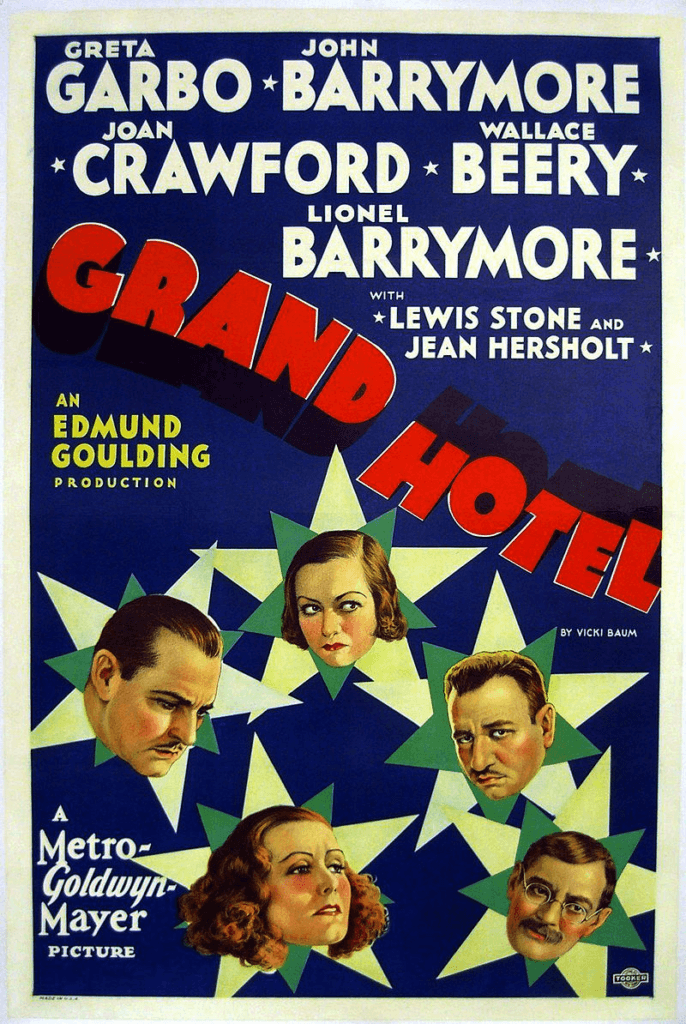
What is the Grand Hotel Style in Film?
In Grand Hotel, a groundbreaking storytelling technique for its time was introduced, where multiple characters’ stories unfold simultaneously.
This approach, known as the “Grand Hotel style,” became a hallmark of the film.
In the Grand Hotel style, each character brings their own drama, and their fates intersect within a single setting—the hotel.
Through this structure, the audience follows the narrative from various perspectives, immersing themselves in different facets of human relationships.
This storytelling method has had a profound impact on later films, television series, and novels, establishing itself as a standard in ensemble dramas.
Even today, the Grand Hotel style continues to be widely used, attesting to its lasting influence in the world of storytelling.
Why Did Grand Hotel Win the Academy Award?
Grand Hotel won the Academy Award for Best Picture at the 5th Academy Awards, a significant and surprising achievement at the time.
Remarkably, it was the only film in Oscars history to win Best Picture without any other nominations.
Several factors likely contributed to its success:
- Stellar Performances by an All-Star Cast: The movie showcased a high-profile cast, each delivering powerful performances that captivated audiences.
- Innovative Grand Hotel Style: The unique ensemble narrative, where multiple characters’ lives interweave within one setting, offered a fresh storytelling approach.
- Reflection of Social Themes: The film explored themes reflective of the era, resonating with audiences and Academy members alike.
These elements combined to make Grand Hotel a standout, leading it to capture the Academy’s top honor.
A Cinematic Masterpiece for the Ages
Even over 90 years after its release, Grand Hotel remains a beloved classic in film history.
Its enduring appeal lies in its exploration of universal themes that resonate across generations.
Emotions such as joy and sorrow, love and loneliness, hope and despair continue to move audiences, as they reflect the timeless human experience.
Additionally, the stellar performances by an all-star cast and the innovative “Grand Hotel style” narrative enhance the film’s charm.
Grand Hotel is truly a masterpiece that will continue to inspire and captivate viewers for generations to come.
Trivia about the Movie Grand Hotel
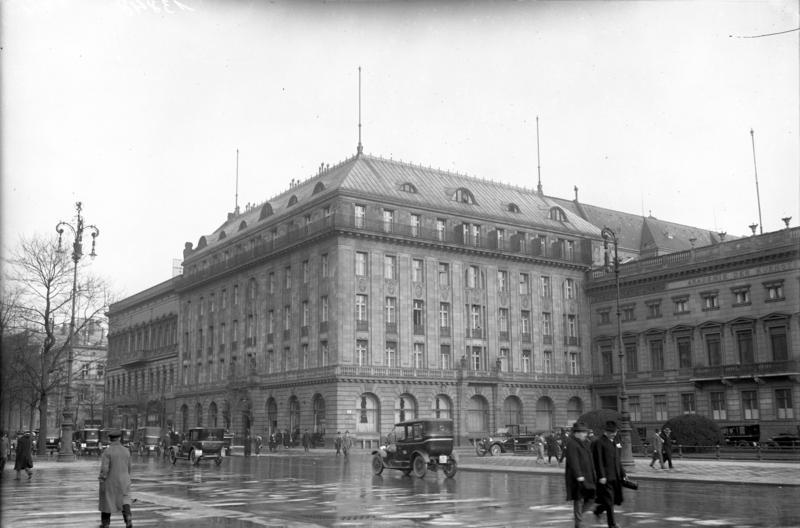
The Berlin Hotel That Set the Stage for the Movie
The story of the movie Grand Hotel unfolds in a fictional luxury hotel in Berlin, where characters from diverse backgrounds and with various intentions converge, making the hotel a “social crossroads” where their lives intersect. This setting offers audiences a glimpse into the opulent lifestyles of Berlin’s upper class at the time, adding depth to the narrative.
The author of the original novel, Vicki Baum, had experience working in a renowned Berlin hotel, and her insights heavily influenced the details and character portrayals in the story.
Notably, Berlin’s Adlon Hotel was famed as a center of social life throughout the 1920s and 1930s, attracting many prominent figures and members of high society.
Though partially destroyed during World War II, the Adlon was rebuilt in 1997 and continues to operate today as the “Hotel Adlon Kempinski.
” It stands as a premier luxury hotel in Berlin, evoking the grandeur and formality that Grand Hotel aimed to capture.
Berlin also once had the prestigious Eden Hotel, another significant social hub of the era.
Although the Eden was destroyed during the war and never rebuilt, its influence on Berlin’s cultural landscape at the time enhances the authenticity of Grand Hotel’s backdrop.
These real-life Berlin hotels function as symbols of “meeting and parting” in the story, allowing audiences to resonate with the characters’ loneliness and internal conflicts.
Spaces like the Adlon and Eden Hotel, where social and political power mingled, reflect the impact of such settings on the characters’ psychology and fate within the movie.
Behind-the-Scenes Stories from the Filming of Grand Hotel
The production of Grand Hotel was filled with fascinating behind-the-scenes stories.
One of the most notable was the rivalry between Greta Garbo and Joan Crawford.
The two actresses reportedly viewed each other as rivals and avoided appearing in the same scene.
As a result, there are no shared scenes between them, and their shots were filmed separately.
In the crowded lobby scenes, to avoid the noise of footsteps during recording, all actors wore thick socks over their shoes.
According to reports at the time, up to 200 pairs of woolen socks were used per day to muffle the sounds.
Additionally, Garbo requested that the entire set be adjusted to red tones to create a more romantic atmosphere, enhancing the visual impact of her scenes.
Her request was granted, and the set’s color scheme was modified accordingly.
These anecdotes provide insight into the unique atmosphere on the set of Grand Hotel, reflecting the personalities of the stars and the Hollywood dynamics of the time.
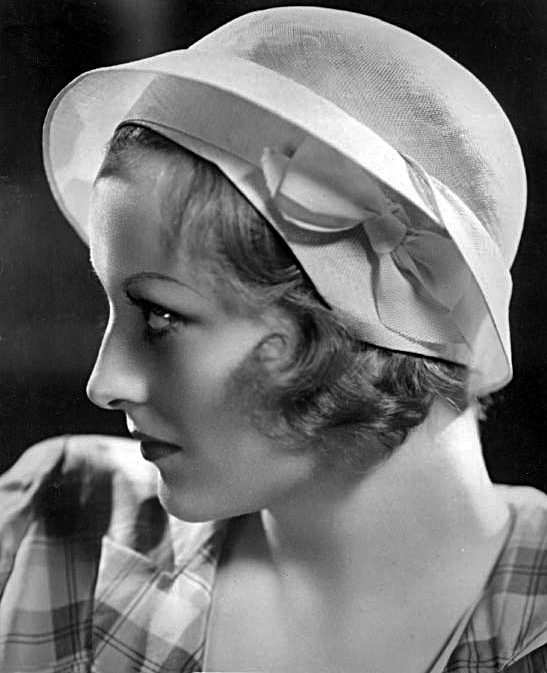
Behind-the-Scenes Stories of Working with John Barrymore
In Grand Hotel, Greta Garbo had the opportunity to co-star with John Barrymore.
Barrymore, a legendary actor from the renowned Barrymore family of American theater, was famously known as “The Great Profile.” Initially, Garbo was supposed to co-star with John Gilbert, her frequent on-screen partner, but due to Gilbert’s declining popularity, Barrymore was chosen instead.
Though both Garbo and Barrymore were acclaimed for their acting prowess, their personalities were quite the opposite.
Garbo was a perfectionist, known for her meticulous approach and insistence on numerous rehearsals.
Barrymore, on the other hand, was fond of drinking and often performed with spontaneity, relying on his improvisational skills.
Despite these differences, or perhaps because of them, the two actors generated incredible on-screen chemistry, creating unforgettable scenes that have stood the test of time.
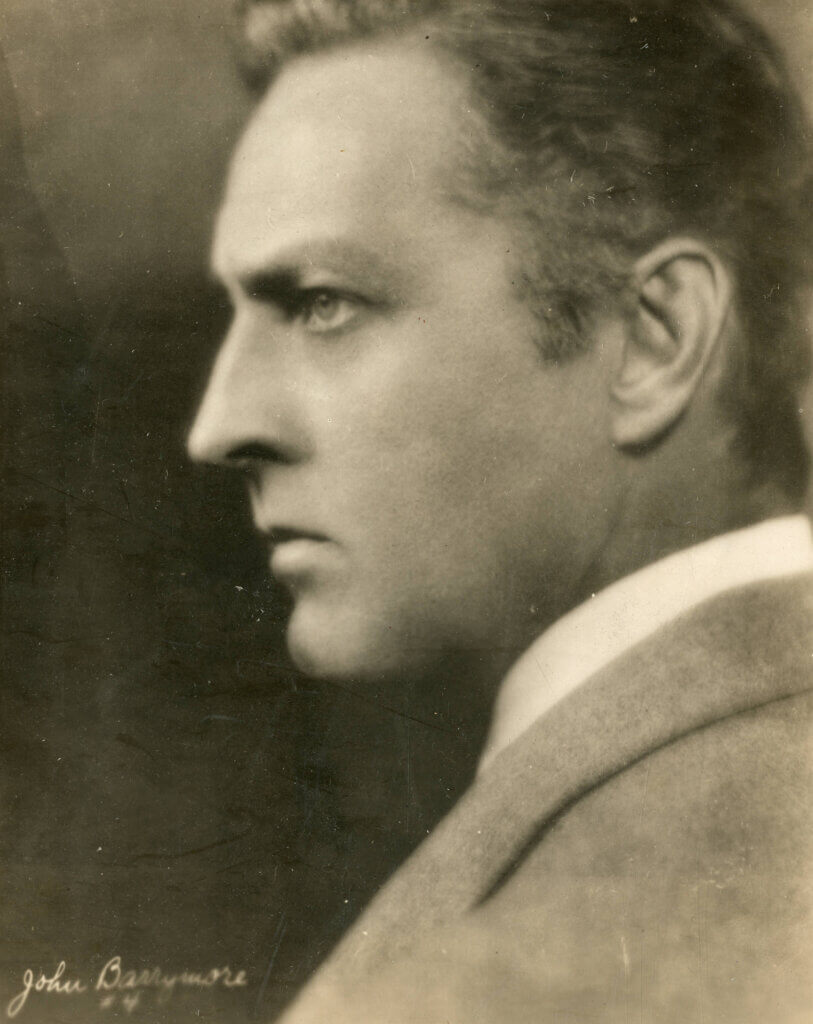
Iconic Lines from Grand Hotel and Their Appeal
In Grand Hotel, Greta Garbo plays Grusinskaya, a role that cemented her as one of Hollywood’s most iconic actresses. With her enigmatic beauty and commanding presence, the Swedish-born Garbo captivated audiences worldwide.
Her portrayal of a ballerina clinging to past fame, while filled with loneliness and despair, is unforgettable.
Her famous line, “I want to be alone,” powerfully conveys Grusinskaya’s isolation and emptiness, making it one of cinema’s most memorable quotes.
This line was even selected among the American Film Institute’s Top 100 Movie Quotes, securing its place in film history.
Beyond “I want to be alone,” Grand Hotel features other memorable lines, each imbued with depth by Garbo and her co-stars. For instance, Baron von Gaigern’s line, “Life is always just around the corner,” suggests the unexpected twists and turns that life can bring.
Another poignant line, “Everybody’s got something they’ve lost,” spoken by Kringelein, captures the universal sense of loss that everyone experiences.
Flaemmchen’s declaration, “I never look back. I look ahead,” reflects a determined spirit, urging her to focus on the future and move forward without dwelling on the past.
These lines not only reflect the characters’ emotions and life philosophies but also resonate with universal themes that speak to audiences even today.
Through Garbo’s nuanced expressions and emotional depth, these words gain a profound impact that stirs viewers’ hearts and leaves a lasting impression.
Influence on Future Generations
Grand Hotel has had a profound impact on the history of cinema.
As mentioned earlier, the “Grand Hotel style”—a narrative structure where multiple characters’ stories unfold simultaneously—was established with this film.
This technique became a staple for ensemble dramas, influencing countless movies, television shows, and novels.
Grand Hotel is also credited as a pioneering social drama.
Set against the backdrop of post-World War I German society, it portrays the lives and struggles of people from different social classes, highlighting pressing social issues of the time.
Furthermore, this film is emblematic of Hollywood’s Golden Age. With its all-star cast, sophisticated direction, and strong social message, Grand Hotel captures the essence of what made Hollywood films of that era so remarkable.
Its legacy continues, inspiring filmmakers and captivating audiences to this day.
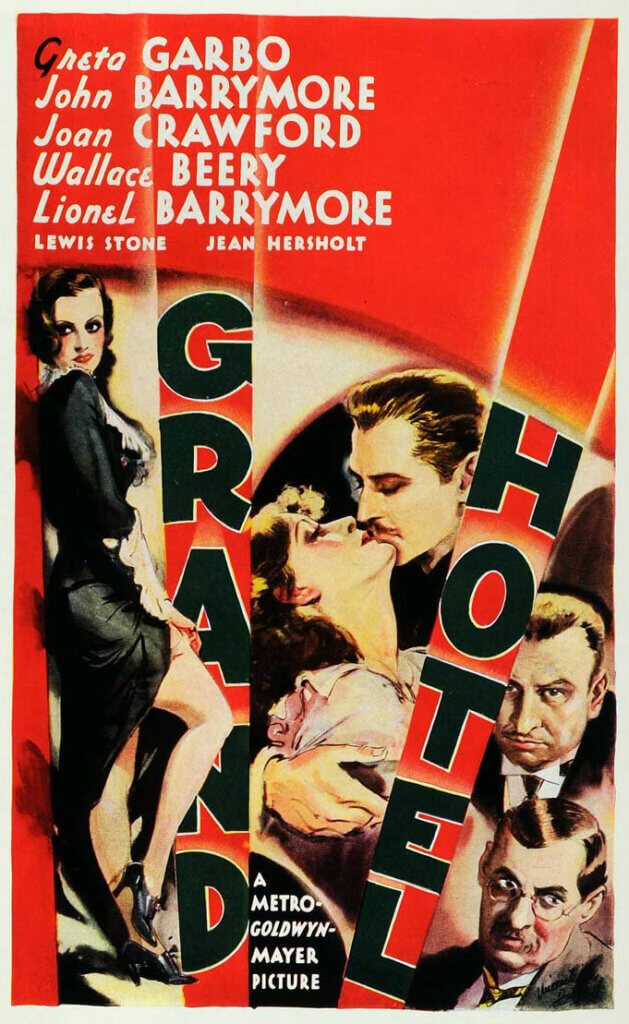
Summary of the Movie Grand Hotel
- Grand Hotel is a drama film released in 1932.
- Set in a luxury hotel in Berlin, the film depicts the intersecting lives of diverse characters.
- Grusinskaya, a ballerina, is struggling with her fading career.
- Baron von Gaigern initially intends to steal her jewels but ultimately falls in love with her.
- The “Grand Hotel style” pioneered the ensemble drama approach and influenced future films.
- It is characterized by multiple characters with different goals converging in a single setting.
- The all-star cast and stellar performances add depth to the film.
- Greta Garbo’s line, “I want to be alone,” is an iconic quote from the movie.
- The film won the Academy Award for Best Picture at the 5th Oscars.
- Its success popularized the “Grand Hotel style,” inspiring other films to adopt this narrative format.
- The Berlin hotel setting symbolizes the lifestyle of the upper class.
- The storyline, inspired by real-life scandals, adds a layer of authenticity.
- Garbo and Crawford’s off-screen relationship influenced the production.
- The “Grand Hotel style” continues to be used in disaster and ensemble films.
- The multi-perspective approach offers audiences a fresh cinematic experience.
